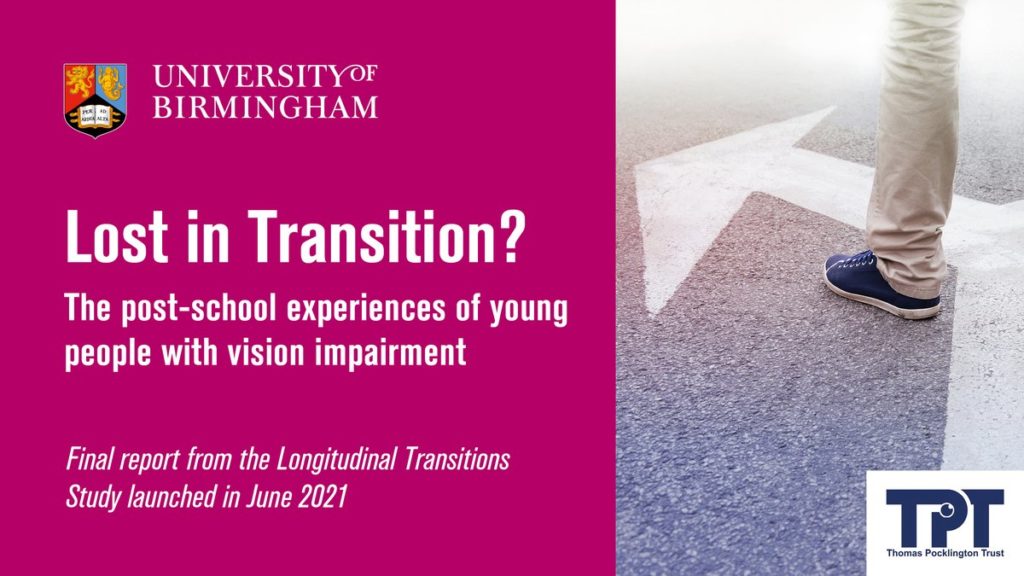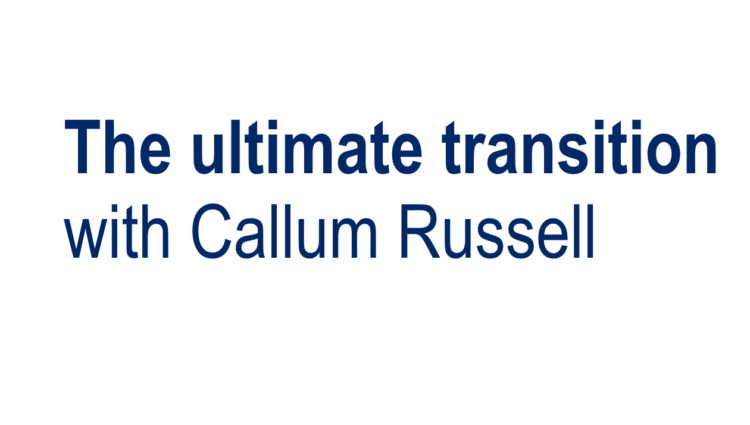Lost in transition
Recently, I had the privilege of delivering a workshop as part of the University of Birmingham’s ‘Lost In Transition’ conference. Theoretically, employment is the ultimate transition for anyone. However, one in every four vision impaired adults being unemployed suggests that this transition seems a distant reality.


Thomas Pocklington Trust
Barriers to the transition of the vision impaired into work
With such a high proportion of the vision impaired failing to transition into meaningful work, it is clear that employers could and should do more.
Work Experience to support transition for the vision impaired
Blind and vision impaired young people rarely get access to high quality work experience at a frequency comparable to that of their sighted peers. This is mainly because Access To Work doesn’t fund adjustments for unpaid work placements, meaning the costs of adjustments for employers are often prohibitive. Solutions include work shadowing opportunities and the use of school/college equipment during work placements.
Mobility
The blind and vision impaired regularly struggle with travelling in unfamiliar environments. Though home working may become more common, the need to be confident travellers, especially in the context of a job interview, will remain. Mobility lessons therefore need to include the use of all public transport and communication strategies for obtaining assistance from taxi drivers.
Assistive Technology
Windows is the workplace platform. Whilst specialist technology such as a Braille Note Touch is fantastic, the blind and vision impaired must be confident in the basics of Word, Excel and Outlook. In addition, local authorities need to ensure that students use the right screen reading or magnification software for their individual needs rather than seek a ‘one size fits all solution’.
Self-advocacy
The blind and vision impaired regularly struggle to articulate their needs to employers. The consequences can be very severe and sadly include the potential loss of employment. Self-advocacy needs to be encouraged much more widely so that blind and vision impaired young people see it as the norm.
